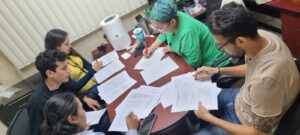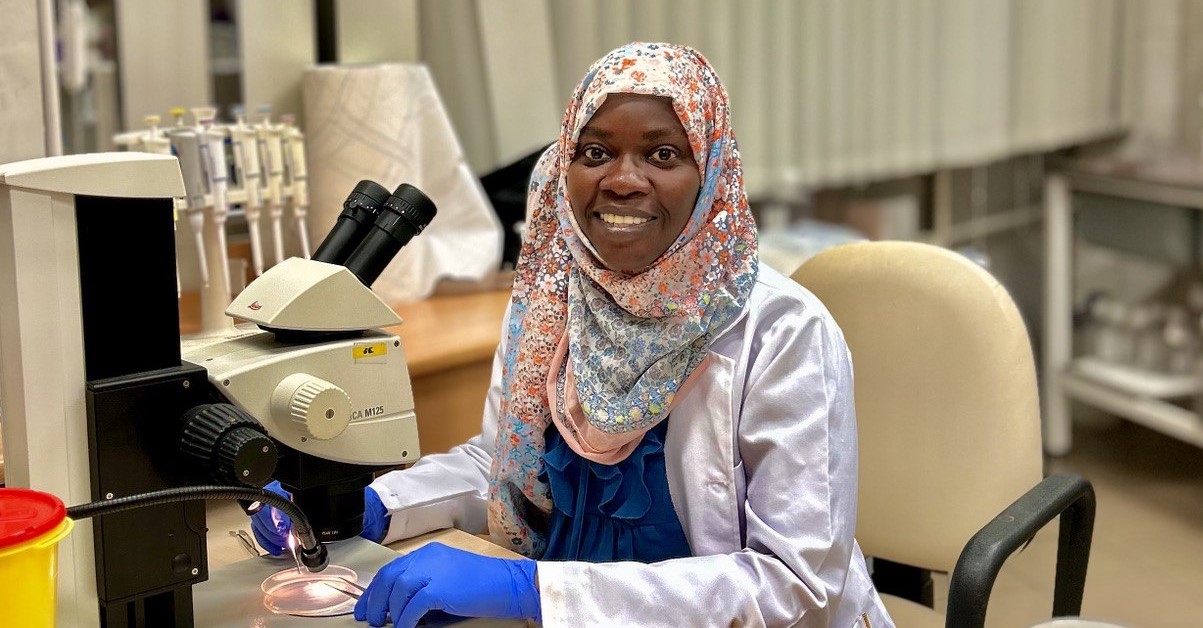
On not giving up and overcoming gender bias: Nafisa’s journey as a woman researcher from Sudan
Welcome to our second interview of this mini blog series, celebrating and reflecting on the International Day of Women and Girls in Science. INASP Programme Assistant Maisie Northing and AuthorAID Community Administrator Aastha Subedi have spoken with several AuthorAID stewards, asking them about their career journey as a woman, their opinions and thoughts on ways more equitable opportunities for women and girls could be achieved, and what advice they would give their younger selves and young researchers. Enjoy hearing from Nafisa M K Elehamer, the second of our interviewees for this week.
Nafisa is a PhD candidate in Public Health and Epidemiology at the University of Debrecen-Hungary, a health education lecturer at the University of Khartoum-Sudan, a director at ReachSci-Society of the University of Cambridge, a member of the Global Researcher Club, a facilitator and an AuthorAID foundational steward.
Could you share some highlights or significant achievements from your scholarly journey?
As a woman born and raised in the African country of Sudan, I am proud of my parents, who have overcome social norms and limited education to raise me as I am now. During my school years, I was highly motivated and passionate about learning to obtain the highest degree. This was an essential and valuable goal for me, and I was determined to achieve it. Despite the competitive nature of obtaining a degree, I successfully attained my goal as the first achievement in my educational journey.
My first year of study at the prestigious University of Khartoum in the Faculty of Public and Environmental Health was undoubtedly the most difficult, but I excelled academically and was nominated for transfer to the prestigious Medical Laboratory Faculty. However, my passion did not lie in this field, and I decided to challenge myself by diligently studying and becoming a teaching assistant at the University of Khartoum. My goal was to change the community’s perspective on public health, and this endeavour not only impacted my family, especially my sisters, to continue their studies but also led to my second notable achievement. I have received an honorary degree in Public Health (Health Education). I was awarded two certificates for my second-best academic performance in the Faculty of Public and Environmental Health at the University of Khartoum for my fourth and fifth years of study. After graduating, I started working as a teaching assistant. My goals then shifted to balancing my work and studies; as an academic, I needed to stay up-to-date, and in a country with limited resources, I had to do my best to overcome such issues, by seeking guidance from our dean of the faculty, who is an expert in the field, as well as other colleagues. One year later, I began pursuing my master’s degree, but I wanted something different, such as scholarships, training, and leadership skills, to improve my skills. I then had the opportunity to apply for a DAAD scholarship and was granted the award. My journey has been long and rewarding, including the opportunity to travel to India for two short courses, one in my field and the other as a passion. My passion for research started during my master’s project, where I had to assess social stigma among people living with HIV/AIDS and PLWHA. I was in the field, listening to many stories and many patients who were suffering. I contributed to counselling while completing my questionnaires and helped many patients reduce stress. This is one of the most significant contributions in the field.
Pursuing a Ph.D. in Public Health was an important milestone for me, and I was privileged to present my findings at global conferences, such as Pecs University in Hungary in 2020 (credits to stipendium Hungaricum scholarship and the University of Debrecen), and engage with prominent professionals in my field. I was compelled to refine my research abilities during this period. I am grateful to Allah for leading me to AuthorAID, a pivotal steppingstone on my journey to success. Attending my initial course on research writing, I gained invaluable insights into the intricacies of research, which facilitated my collaboration with esteemed colleagues in the field and eventually resulted in the publication of my first article, based on my research, in reputed international journals in 2021. I am captivated by AuthorAID and its community, and I have disseminated this information to several acquaintances. The importance of investing in girls and young women in science has become clear to me as it has a disproportionately positive impact on their research skills. 2023 was a year of significant achievement for me where I had to be a part of different research organisations and societies, as a facilitator and then foundational steward with AuthorAID, a member of the Global Researcher Club, a director at the ReachSci-Society of Cambridge University, and a student mentor at the University of Debrecen.
My most significant achievement in life is, I am content with who I am and do not wish to be anyone other than myself; I appreciate myself and what I have accomplished, both in the past and present and will be in the future. I enjoy the process of learning and have gained valuable insights from my mistakes.
As a woman, what challenges have you faced or witnessed in your career and how did you overcome them?
Despite all the above achievements, I have faced many challenges in my career, including gender bias and discrimination in one of the organizations. However, I learned to overcome these obstacles by staying focused and persistent, never giving up, and seeking the support of mentors and colleagues who share my passion for research. Balancing family issues with academic pursuits and volunteering has been a challenge. Flexibility, time management, self-discipline, and understanding from these organizations I am part of, and my family have been crucial. I cannot deny that I lost many opportunities outside academia due to gender bias and organizational basis. However, I will get what I want in time because, in one of the cases that happened to me, I wanted to work with one of the organisations. I tried it multiple times, but they rejected me, and I decided to focus on my skills. A year later, they contacted me, expressing their interest in me being a part of their organisation, at my convenience. Different institutions also rejected me because of my financial issues, but scholarships were my solution.
Academic and research endeavours can be challenging, and I have faced the issue of procrastination, which is often accompanied by the pressure to work under tight deadlines. Although this approach has sometimes been successful, it can also be stressful. To address this, I have been improving my productivity by prioritising tasks and managing my time more effectively, which has proven beneficial.
Can you tell us who your women role models and inspiration have been, and do you have a particular female scientist or researcher whom you currently admire and why?
Many individuals have significantly impacted my life and served as role models. For instance, my mother has been a key figure in my academic pursuits, constantly encouraging and supporting me in all my endeavours. Her unwavering support has been a source of my strength, and everything she has done I am grateful for. While I can never fully repay her for the kindness she has shown me, I am eternally thankful for her unwavering dedication. Dr Marie Curie, a distinguished scientist and researcher, has deeply influenced me and the world through her big impact on cancer treatment and (radium and polonium) identification. I am also fascinated by Oprah Winfrey. Specifically, by her life journey and how she transformed from a poor, weak girl to a lady with full power that changed many people’s lives, her leadership skills and how she put her stamp on history. Lastly, Michelle Obama who held the first lady position as an African American. She has significantly impacted society by advocating for military families and fighting childhood obesity. One of her noteworthy projects aimed to encourage healthy eating habits and symbolise her dedication to improving the well-being of American citizens.
If you had, or have, a mentor, how did their mentorship impact you?
My academic journey has been enriched by the presence of mentors who have played pivotal roles in my career growth. Most of the people mentoring me were men, but I had my first female mentor, Dr Redempta Mutisya, who inspired me in public health. Still, their invaluable guidance, support, and inspiration have been instrumental in helping me acquire the necessary skills and knowledge to excel in research. Their assistance extended to research design, grant applications, and career-related decisions, and their constant encouragement boosted my confidence and professional skills. Being a mentor is something I am passionate about, and I hope to pay it forward by sharing the benefits of my experiences with younger researchers. I am eager to provide the same level of direction that I got and encouragement to others.
What would you like to see in your own country’s context to pave the way for more women and girls to succeed in research?
It would be wonderful to witness the presence of women on the frontlines across fields. It is crucial to emphasise promoting the growth of scholarships and fellowships for them. These programmes empower women to enhance their skills and contribute to their countries. Investing in research infrastructure, laboratories, and awareness campaigns to challenge gender stereotypes and foster networking would yield significant benefits. Many researchers and students, including myself, face publishing challenges. Ensuring the equal representation of women and providing access to education is crucial, especially considering the obstacles many young girls encounter. Creating an inclusive and supportive environment can empower women and girls to excel in research and make meaningful contributions to their fields. Furthermore, Sudan currently faces a severe education crisis due to ongoing conflicts. With an estimated 19 million children out of school, including girls, I am trying my best to help, and I hope global agencies will also take action.
Could you please share one piece of advice or recommendations you would offer to your younger self or younger female scholars?
I advise younger female scholars to embrace their multiple roles, establish boundaries, and utilise the available support networks. This can include seeking mentorship and support from peers, mentors, and allies, staying focused on their goals, and being open to learning from setbacks. Recall that you belong to academia, and your voice matters. Embrace failure as part of growth, and remember to acknowledge and appreciate every step you take towards achieving your goals, regardless of how small they may be. Do not give up; you can do it if other people can.
We are grateful to Nafisa M K Elehamer for her time and willingness to share her experiences and thoughts with us. We hope you have enjoyed reading this blog and are excited for the next interview tomorrow, in which Alejandra Arreola tells us about mentorship, what should be done for women and girls to better succeed in research, and more!

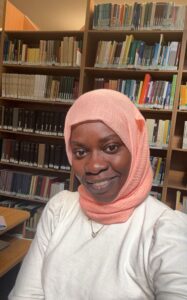
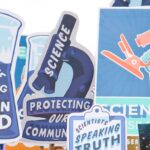 Previous Post
Previous Post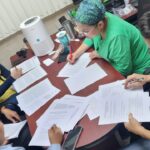 Next Post
Next Post

